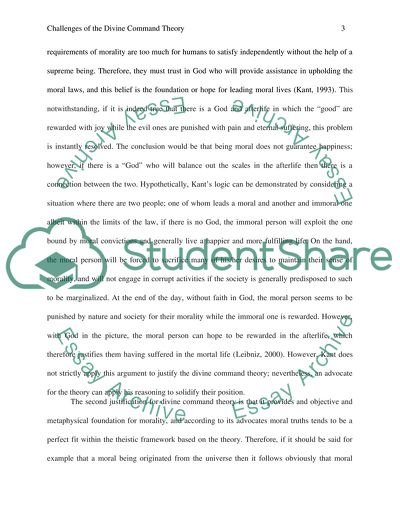Cite this document
(Challenges of the Divine Command Theory Essay Example | Topics and Well Written Essays - 3500 words, n.d.)
Challenges of the Divine Command Theory Essay Example | Topics and Well Written Essays - 3500 words. https://studentshare.org/philosophy/1836324-4-analyze-and-discuss-the-problems-associated-with-divine-command-theory
Challenges of the Divine Command Theory Essay Example | Topics and Well Written Essays - 3500 words. https://studentshare.org/philosophy/1836324-4-analyze-and-discuss-the-problems-associated-with-divine-command-theory
(Challenges of the Divine Command Theory Essay Example | Topics and Well Written Essays - 3500 Words)
Challenges of the Divine Command Theory Essay Example | Topics and Well Written Essays - 3500 Words. https://studentshare.org/philosophy/1836324-4-analyze-and-discuss-the-problems-associated-with-divine-command-theory.
Challenges of the Divine Command Theory Essay Example | Topics and Well Written Essays - 3500 Words. https://studentshare.org/philosophy/1836324-4-analyze-and-discuss-the-problems-associated-with-divine-command-theory.
“Challenges of the Divine Command Theory Essay Example | Topics and Well Written Essays - 3500 Words”. https://studentshare.org/philosophy/1836324-4-analyze-and-discuss-the-problems-associated-with-divine-command-theory.


